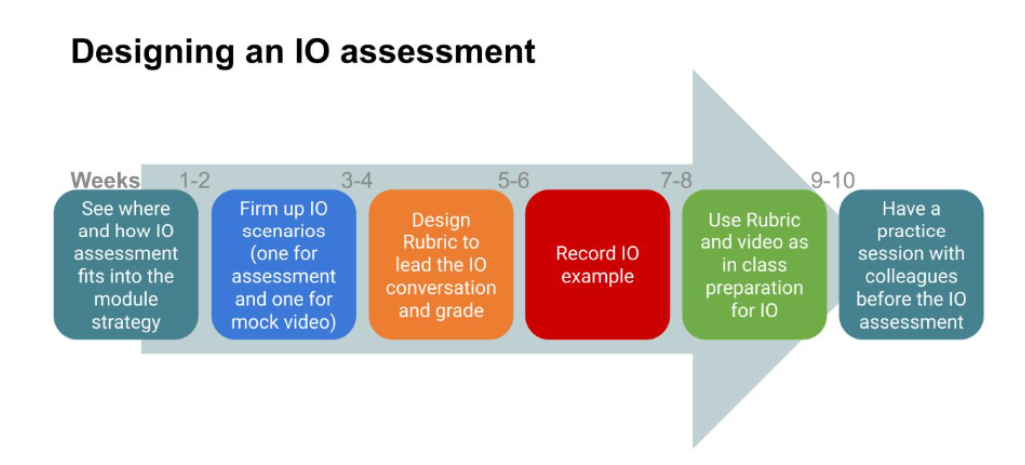What is an IO assessment?
An IO assessment is a dynamic, two-way conversation designed to assess student learning through genuine, unscripted dialogue based on real-world scenarios. Unlike traditional oral exams that follow a rigid question-and-answer format within strict exam conditions, IOs feature natural conversational prompts and are typically conducted in authentic settings. The discussion is based on a professional scenario and the conversation should support students in showing their learning. Typically, the discussions promote higher-order thinking as students are asked to explain their choices, consider alternative situations, and apply their findings to other contexts.
An Interactive Oral is an ‘efficient and effective form of authentic assessment that promotes skill development and employability, enhances overall student engagement and personalised approach to learning and teaching, and preserves academic integrity.’ (Sotiriadou et al., 2020)
What are the benefits of IO assessments?
The benefits are clear: IOs help foster employability and higher-order cognitive skills; they are scalable (it has been tested with up to 800 students) and inclusive; and they support high standards of academic integrity. Students were shown to be engaged and less stressed during the assessment. For teachers too, the discussions were often genuinely engaging.











